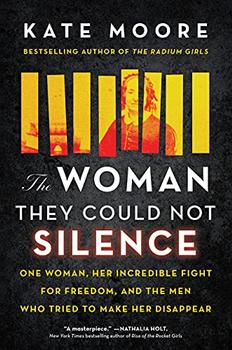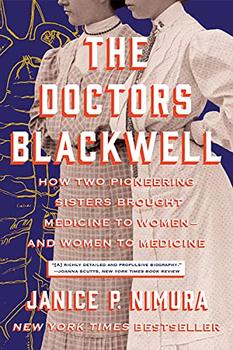Summary | Excerpt | Reviews | Beyond the book | Read-Alikes | Genres & Themes | Author Bio

Sex, Censorship, and Civil Liberties in the Gilded Age
by Amy SohnThe New York Times–bestselling author Amy Sohn presents a narrative history of Anthony Comstock, anti-vice activist and U.S. Postal Inspector, and the remarkable women who opposed his war on women's rights at the turn of the twentieth century.
Anthony Comstock, special agent to the U.S. Post Office, was one of the most important men in the lives of nineteenth-century women. His eponymous law, passed in 1873, penalized the mailing of contraception and obscenity with long sentences and steep fines. The word Comstockery came to connote repression and prudery.
Between 1873 and Comstock's death in 1915, eight remarkable women were charged with violating state and federal Comstock laws. These "sex radicals" supported contraception, sexual education, gender equality, and women's right to pleasure. They took on the fearsome censor in explicit, personal writing, seeking to redefine work, family, marriage, and love for a bold new era. In The Man Who Hated Women, Amy Sohn tells the overlooked story of their valiant attempts to fight Comstock in court and in the press. They were publishers, writers, and doctors, and they included the first woman presidential candidate, Victoria C. Woodhull; the virgin sexologist Ida C. Craddock; and the anarchist Emma Goldman. In their willingness to oppose a monomaniac who viewed reproductive rights as a threat to the American family, the sex radicals paved the way for second-wave feminism. Risking imprisonment and death, they redefined birth control access as a civil liberty.
The Man Who Hated Women brings these women's stories to vivid life, recounting their personal and romantic travails alongside their political battles. Without them, there would be no Pill, no Planned Parenthood, no Roe v. Wade. This is the forgotten history of the women who waged war to control their bodies.
Sohn recounts the larger-than-life characters Comstock battled, painting a vivid picture of Gilded Age America. There were the activists and questionable grifters Victoria Woodhull and Tennessee Claflin, sisters who spoke and advocated for women's rights including suffrage and sexual equality; Angela and Ezra Heywood, dedicated spouses who promoted free love principles; and Ann Lohman, a New York City abortionist knows as Madame Restell. These stories of the women and men who advocated for social change and, eventually, sexual liberation are long overdue, but Sohn is right to discuss frankly how many of them espoused scientifically bunk ideas of eugenics...continued
Full Review
(852 words)
This review is available to non-members for a limited time. For full access,
become a member today.
(Reviewed by Rose Rankin).
 In 1916 in a poor Brooklyn neighborhood, three women opened a clinic providing information about birth control. Despite the fact that birth control has existed in various forms for millennia, at the time it was illegal to share such information, and within 10 days the clinic was shut down and the three women — Margaret Sanger, Ethel Byrne and Fania Mindell — were arrested. This marked the beginning but not the end of challenges to the existence of the women's health clinics eventually knows as Planned Parenthood.
In 1916 in a poor Brooklyn neighborhood, three women opened a clinic providing information about birth control. Despite the fact that birth control has existed in various forms for millennia, at the time it was illegal to share such information, and within 10 days the clinic was shut down and the three women — Margaret Sanger, Ethel Byrne and Fania Mindell — were arrested. This marked the beginning but not the end of challenges to the existence of the women's health clinics eventually knows as Planned Parenthood.
Charged with violating the 1873 Comstock Act that prohibited disseminating contraception or even information explaining birth control, Sanger and her fellow activists and nurses reopened the clinic anyway only to be ...
This "beyond the book" feature is available to non-members for a limited time. Join today for full access.

If you liked The Man Who Hated Women, try these:

The Woman They Could Not Silence
by Kate Moore
Published 2022
From the New York Times, USA Today, and Wall Street Journal bestselling author of The Radium Girls comes another dark and dramatic but ultimately uplifting tale of a forgotten woman whose inspirational journey sparked lasting change for women's rights and exposed injustices that still resonate today.

by Janice P. Nimura
Published 2022
Elizabeth Blackwell believed from an early age that she was destined for a mission beyond the scope of "ordinary" womanhood.